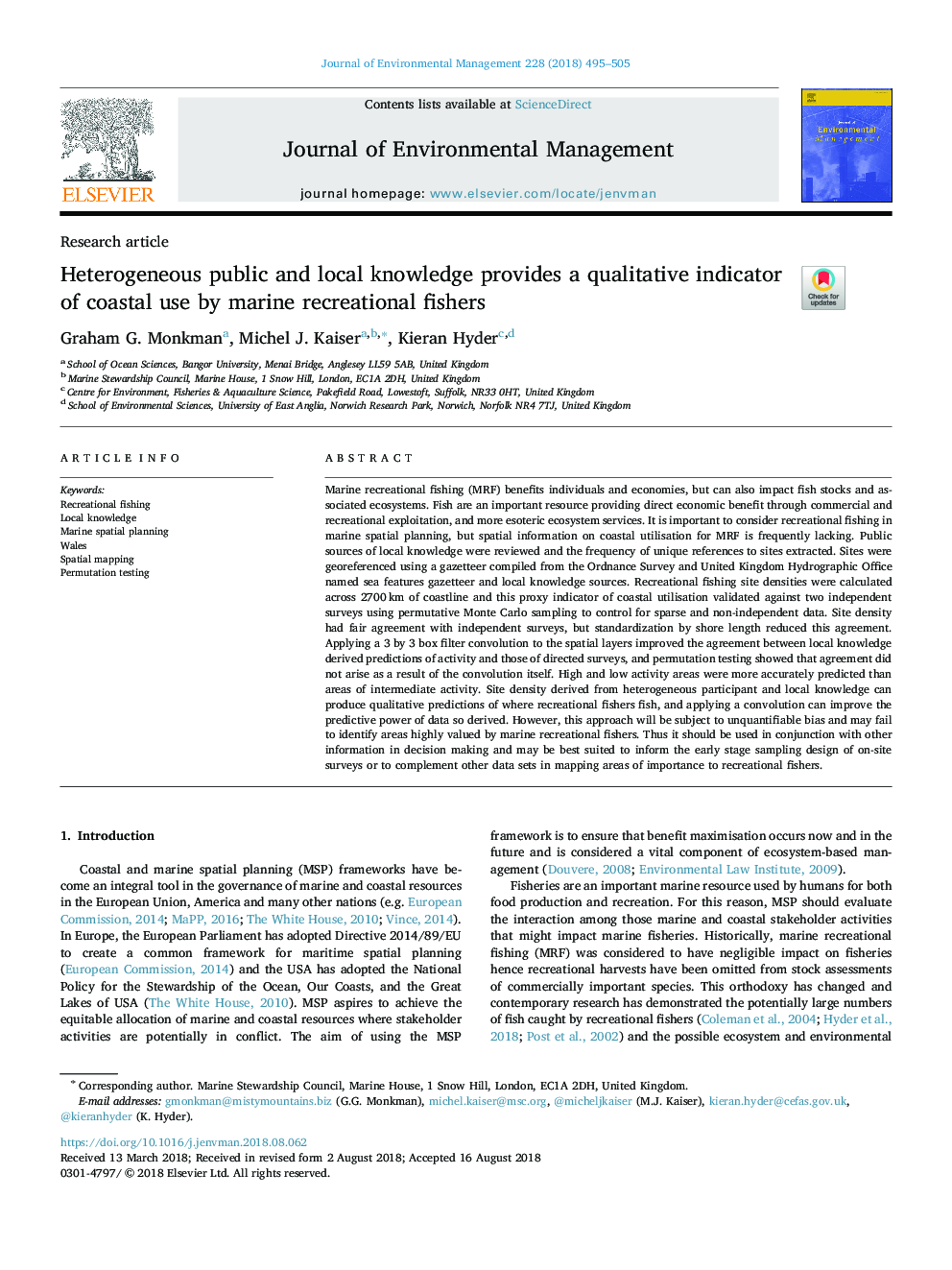| کد مقاله | کد نشریه | سال انتشار | مقاله انگلیسی | نسخه تمام متن |
|---|---|---|---|---|
| 11028779 | 1646715 | 2018 | 11 صفحه PDF | دانلود رایگان |
عنوان انگلیسی مقاله ISI
Heterogeneous public and local knowledge provides a qualitative indicator of coastal use by marine recreational fishers
ترجمه فارسی عنوان
دانش عمومی و محلی ناهمگن نشانگر کیفی استفاده ساحلی از ماهیگیران تفریحی دریایی است
دانلود مقاله + سفارش ترجمه
دانلود مقاله ISI انگلیسی
رایگان برای ایرانیان
کلمات کلیدی
ماهیگیری تفریحی، دانش محلی، برنامه ریزی فضایی دریایی، ولز، نقشه برداری فضایی، تست جایگزینی،
موضوعات مرتبط
مهندسی و علوم پایه
مهندسی انرژی
انرژی های تجدید پذیر، توسعه پایدار و محیط زیست
چکیده انگلیسی
Marine recreational fishing (MRF) benefits individuals and economies, but can also impact fish stocks and associated ecosystems. Fish are an important resource providing direct economic benefit through commercial and recreational exploitation, and more esoteric ecosystem services. It is important to consider recreational fishing in marine spatial planning, but spatial information on coastal utilisation for MRF is frequently lacking. Public sources of local knowledge were reviewed and the frequency of unique references to sites extracted. Sites were georeferenced using a gazetteer compiled from the Ordnance Survey and United Kingdom Hydrographic Office named sea features gazetteer and local knowledge sources. Recreational fishing site densities were calculated across 2700â¯km of coastline and this proxy indicator of coastal utilisation validated against two independent surveys using permutative Monte Carlo sampling to control for sparse and non-independent data. Site density had fair agreement with independent surveys, but standardization by shore length reduced this agreement. Applying a 3 by 3 box filter convolution to the spatial layers improved the agreement between local knowledge derived predictions of activity and those of directed surveys, and permutation testing showed that agreement did not arise as a result of the convolution itself. High and low activity areas were more accurately predicted than areas of intermediate activity. Site density derived from heterogeneous participant and local knowledge can produce qualitative predictions of where recreational fishers fish, and applying a convolution can improve the predictive power of data so derived. However, this approach will be subject to unquantifiable bias and may fail to identify areas highly valued by marine recreational fishers. Thus it should be used in conjunction with other information in decision making and may be best suited to inform the early stage sampling design of on-site surveys or to complement other data sets in mapping areas of importance to recreational fishers.
ناشر
Database: Elsevier - ScienceDirect (ساینس دایرکت)
Journal: Journal of Environmental Management - Volume 228, 15 December 2018, Pages 495-505
Journal: Journal of Environmental Management - Volume 228, 15 December 2018, Pages 495-505
نویسندگان
Graham G. Monkman, Michel J. Kaiser, Kieran Hyder,
